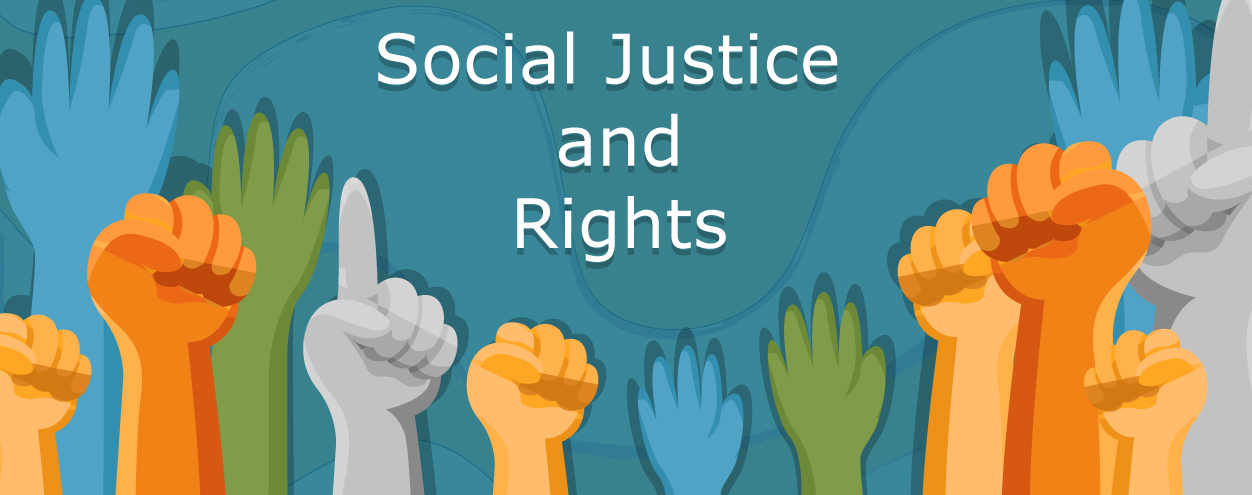Social Justice and Rights of Dalit in Present Scenario of Nepal
Author: Advocate Dipak Khanal

Introduction
For centuries, the Dalit minority groups in Nepal have endured systematic discrimination and oppression. They still have a long way to go before they can fully exercise their fundamental rights and attain social justice, even with the recent legal reformation entailing proportionate inclusion, participation, and representation in social and political affairs.
Nepal has passed through multiple political uncertainties. The volatile and unstable political regime has been a cause for the inability to dismantle social problems hindering social and economic development.
Nepal’s caste system, rooted in Hinduism, has perpetuated Dalits’ marginalization. The Muluki Ain (Country Code) of 1854 institutionalized caste-based discrimination, declaring Dalits as ‘impure’ and ‘untouchables. Thus, the Dalit community has faced many restrictions in attaining basic amenities such as education, employment, and public services. Although the Code was replaced in 1963 with a subsequent new code, its legacy persists through social and cultural institutions coupled with the state’s inert intervention. The Country Code in 1963 reformed previous provisions and subsequently declared the practice of untouchability as a punishable offense. But the long-rooted tradition of discrimination against the Dalits remained status quo. The present constitution was promulgated by the Constituent Assembly in 2015. The present constitution made some paradigms shift from previous constitutional values. It marked the beginning of federalism, introduced proportionate representation, expanded the provision of human rights as fundamental rights, established a republic, and officially transformed Nepal from a Hindu state to a secular one.
Who are Dalits?
Dalits, occupy the lowest tier in Nepal’s traditional caste hierarchy and comprise around 13.4% of Nepal’s population. As per the 2021 census, Dalits have historically been subjected to social exclusion, economic marginalization, and cultural oppression. The caste system in Nepal has deep historical roots, with the social stratification derived from Hindu traditions. Dalits, who constitute about significant population size, are regarded to the lowest social status, subjected to severe discrimination, social ostracism, and limited access to resources. Historically, they were denied basic rights such as education, land ownership, and participation in governance, leading to intergenerational poverty and marginalization.
Dalits continue to experience discrimination in all walks of life, including employment, education, and public services. Many face restrictions in accessing temples, public spaces, and households of so-called high caste. They have been the victim of violence, degrading inhumane treatment, and various sexual harassment. In 2020, Navaraj BK and his friends who were killed in the Rukum, embarked nationwide spark protests and demanded assurance of justice and reformation of existing legal provisions. The tragic event created an atmosphere of fear and insecurity among the people of the so-called lower castes. Similarly, Dalits exclusion from employment opportunities, and deprived of land ownership has created economic disparity; as a result, they have suffered poverty and access to a dignified life. Traditional occupations often connoted as ‘unclean’ bind them to low-paying jobs, perpetuating cycles of poverty. Lastly, their marginal representation in governance in state organs has clearly violated the social justice principle of proportionate participation. Though the present constitution mandates representation of marginalized communities, the actual political representation of Dalits remains low, reducing their voice in decision-making processes. The meaningful participation of Dalit voices in governance and state affairs has been a mere tokenism.
Present Legal Scenario
Nepal’s constitutional and legal framework has evolved to address the rights of Dalits. The preamble statement of the 2015 Constitution declares to end all forms of discrimination, oppression against underprivileged and marginalized community including Dalits.
The Constitution has formally abolished caste-based discrimination and established the right to equality as one of its fundamental rights. It prohibits discrimination based on caste and encourages the rightful representation of marginalized communities. The Constitution has mentioned fundamental rights such as the right to have a dignified life, the right to equality, the right to freedom, the right against untouchability and discrimination, the right of Dalit, the right to social security, and the right to social justice. Besides, the constitution has assured proportionate representation in every organ of the state including executives, legislative, local bodies, and other constitutional bodies.
The Caste Based Discrimination and Untouchability (Offense and Punishment) Act, 2011 has criminalized caste-based discrimination and untouchability practices and outlines the penalties for the offender but not limited to adequate compensation for the victim. Similarly, the provisions under National Penal Code, 2017 are also significant to deter violence against caste discrimination and offenses against defamation. Apart from these, other laws relating to labor, education, local government operation, land reform, civil service, and social security Act are imperative in terms of the empowerment of Dalit community. Additionally, the National Dalit Commission, under Article 255 of the Constitution, is a constitutional body that monitors and promotes the rights of Dalit and has a recommendatory authority to the government of Nepal to review various laws and policy pertinent to Dalits’ concerns.
Despite these progressive legal provisions, enforcement remains lax. The main reason for the delay is the lack of will from political leaders and the mindset of society, which resists progressive changes and reforms. Even though the constitution and laws guarantee rights like representation, inclusion, participation, and protection of human rights, most people are unaware of these provisions. Due to the social environment and the oppression faced by marginalized communities, many people do not report injustices to the authorities.
Conclusion
To achieve social justice for Dalits in Nepal and ensure a dignified and prosperous life, it is essential to adopt a multifaceted approach. Educational initiatives should focus on fostering equality, respect, and dignity, while highlighting the harmful effects of caste discrimination and any form of discrimination, which is unacceptable in today’s society. Additionally, the Nepalese judiciary must be sensitive to the needs of marginalized communities, such as Dalits, and the state mechanism should be proactive in enforcing laws. Strengthening the enforcement of laws that protect Dalit rights is vital to ensuring the rule of law in its true sense.
Collaboration between the government and NGOs can lead to targeted programs that empower these communities. Furthermore, increasing political inclusion for better representation of Dalits in political structures is crucial. Policies that promote greater participation in governance can enhance their power and influence in decision making. Cultural integration through the exchange of values and norms can help dismantle prejudices and foster acceptance and inclusivity. By prioritizing social justice and Dalit rights, Nepal can move toward a brighter future where all citizens can live with dignity and prosperity.
As a party to various human rights instruments including the International Covenant on Civil and Political Rights, the International Covenant on Economic, Social and Cultural Rights, the Convention on the Elimination of All Forms of Discrimination Against Women, the International Convention on the Elimination of All Forms of Racial Discrimination, and the Convention Against Torture and Other Cruel, Inhuman, or Degrading Treatment or Punishment, Nepal is obligated to protect and promote social justice, eliminate all forms of discrimination, and ensure inclusion and participation in all state organs.
While progress has been made in addressing caste-based discrimination, significant work remains to be done. Achieving social justice and equal rights for Dalits requires a comprehensive approach that includes effective implementation of laws, increased political representation, economic empowerment and more importantly, fair social attitudes. Only through collective efforts can Nepal move toward a more inclusive and equitable society.
About the Author

Advocate Dipal Khanal is currently associated with Prime Law Associate as Senior Legal Associate.
